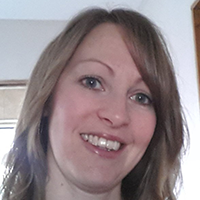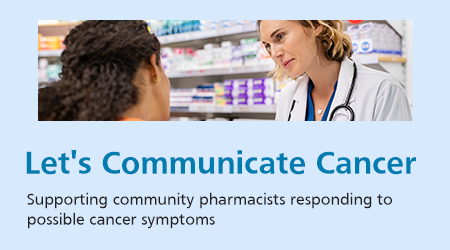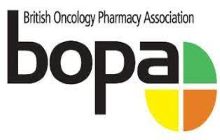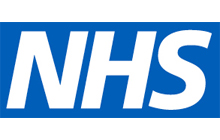About the programme
The Let’s Communicate Cancer programme aims to help community pharmacists respond to patients’ symptoms and refer to cancer specialists.
The programme, developed by the British Oncology Pharmacy Association (Bopa), features 4 modules which cover the following topics:
- early diagnosis and prevention
- what is cancer?
- treatment for cancer
- supporting your patients with cancer
There is also a resource bank within the programme and several quizzes to test learners’ knowledge.
The course is presented as e-learning in bite-sized pieces. Module 1 focuses on Early Diagnosis of cancer in the pharmacy. On completion, learners will be aware of:
1) How to recognise red flag cancer symptoms and provides an example of a real-life case study.
2) How lifestyle causes cancer.
3) How to encourage screening and
4) How to speak to your patients about cancer.
On completion of Module 2, learners would be able to provides an understanding on the science of cancer from basics through to advanced disease.
On completion of Module 3, learners would have reinforced knowledge on the variety of treatments for cancer with particular reference to drug treatments. On completion of Module 4, learners will be able to gives fingertip detail on how you can support your patients with cancer in the pharmacy, including a practical guide showing where to signpost your patients for further help. This module also has a section on pharmacy involvement in palliative care.
In addition, there are also examples of how to answer questions which may be asked. There is a section on providing palliative care.
More information
Cancer survival is the highest it’s ever been and thousands more people now survive cancer every year. For patients diagnosed in 2015, one-year survival was 72% – over 11 percentage points higher than in 2000. Despite this progress, one of the biggest actions the NHS can take to improve cancer survival is to diagnose cancer earlier. Patients diagnosed early, at stages 1 and 2, have the best chance of curative treatment and long-term survival.
This Long-Term Plan sets a new ambition that, by 2028, the proportion of cancers diagnosed at stages 1 and 2 will rise from around half now to three-quarters of cancer patients. Achieving this will mean that, from 2028, 55,000 more people each year will survive their cancer for at least five years after diagnosis. We will build on work to raise greater awareness of symptoms of cancer, lower the threshold for referral by GPs, accelerate access to diagnosis and treatment and maximise the number of cancers that we identify through screening.
The British Oncology Pharmacy Association (BOPA) has developed the Let’s communicate cancer series for community pharmacy to aid responding to symptoms with real life scenarios and learning on how refer for all members of the community pharmacy team.
In addition, the National Institute of Clinical Excellence (NICE) has developed the Suspected Cancer: recognition and referral guideline that covers identifying children, young people and adults with symptoms that caused by cancer. It specifically outlines recommendations by symptoms and findings of primary care investigations which community can use when consulting patients about their symptoms.
Meet the creation team

Jackie Lewis
Community Pharmacist and Director / BOPA Community Pharmacy Sub-Committee Member
Elaine Vickers
Science Communicated Ltd
Gina Speed
MPharm PGDipClinPharm Pharm IP
John Murtagh
Community Pharmacist
Netty Cracknell
Oncology Pharmacist
Lisa MacLeod
Lecturer in Clinical Pharmacy Practice and Specialist Oncology Pharmacist
Joseph Williams
Specialist Cancer Pharmacist at The Christie NHS Foundation Trust
Chris Church
Director of photography
Matt Simpkin
Animator
Meet the transfer team

Andi Blackmore
Programme Manager, elfh HEE
Jen Plested
External Project Manager, elfh HEE
Jasmine Deol
Learning Designer, elfh HEE (quiz development)
Robin Lewis
Learning Designer Animator, elfh HEE
Louise Garrahan
Senior Marketing and Communications Officer, TEL HEE
How to access
In order to access any elfh programme, you will need an elfh account. If you do not have one, then you can register by selecting the Register button below.
To view the Let’s Communicate Cancer programme, select the View button below. If you already have an account with elfh, you will also be able to login and enrol on the programme from the View button.
If you already have an account with elfh, then you can enrol on to the Let’s Communicate Cancer programme by logging in to the elfh Hub, selecting My Account > Enrolment and selecting the programme. You can then access the programme immediately in the My e-Learning section.
Not an NHS organisation?
If you are not an NHS health or care organisation and therefore do not qualify for free access elfh Hub, you may be able to access the service by creating an OpenAthens account.
To check whether or not you qualify for free access via OpenAthens, you can view the eligibility criteria and register on the ‘OpenAthens’ portal.
Registering large numbers of users
If you are a HR, IT or Practice Manager and would like to register and enrol large numbers of staff within your organisation for access onto the Let’s Communicate Cancer programme, please contact elfh directly.
More information
Please select the following link for more information on how to use the elfh Hub.





